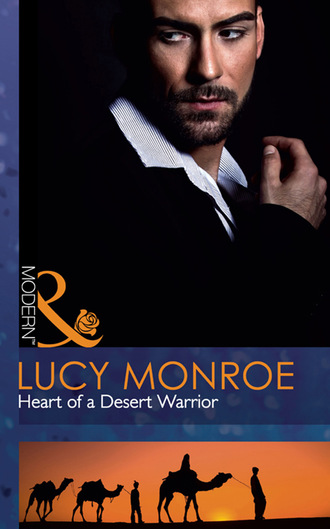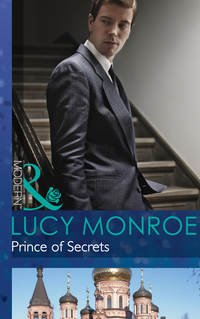
Полная версия
Heart of a Desert Warrior
“Not having a moving camp could make the initial sample gathering and measurements take significantly longer,” she said by way of her final sally.
“Swift is not always better,” Sheikh Hakim said implacably. “Your safety must come first.”
“Would you be more comfortable with a male team lead?” she asked, seeing a possible way out. If the sheikh asked for it, her career wouldn’t be affected adversely. It was understood that some parts of the world did not deal as well with female geologists. “My superiors could arrange for my immediate replacement if that would make you more comfortable.”
“Not at all. I am confident your work will be more than acceptable,” Sheikh Hakim said smoothly.
Russell was staring at her like she’d offered to dance naked on the tabletop. Okay, so normally, she’d bristle and fight tooth and claw to avoid being replaced simply on the basis of gender, but these were special circumstances.
“It surprises me you would make the offer.” Asad sounded just as disbelieving of her words. “I remember a woman who would not stand for the idea that men made better geologists than their female counterparts.”
“I didn’t say he would be a better geologist.”
“Naturally not. You graduated at the top of your class, did you not?”
“I’m surprised you know that.” But then it might well have been included in the information CC&B had supplied about her to Sheikh Hakim.
Asad shrugged again. “I kept up with you.”
No, really, he hadn’t. She’d never heard from him again after he left, though a mutual friend had told Iris when Asad had married a year after returning to his home. She’d spent the weekend crying off and on, for once Iris’s studies unable to assuage the ache of loneliness and grief.
Then she’d buckled down, determined not to let anyone or anything stand in the way of the one dream she had left. She’d even continued her studies in Arabic, though until this assignment, she’d had no chance to use them in more than a few written translations and phone calls.
“I’m surprised your wife isn’t with you,” she said to change the topic and to remind herself forcibly why this man could not be allowed past her defenses.
No matter what the circumstances she would be forced to live in over the coming weeks.
And really? Where was the man’s wife? What woman would prefer to stay at a Bedouin encampment when she could be visiting the local palace? And how did his wife feel about Asad promising protection and guidance to his former girlfriend?
But then, that at least, was an idiotic question. No way did the princess know anything about Iris.
Iris certainly hadn’t known anything about Princess Badra when she’d been dating and sleeping with Asad.
Asad had known, though. He’d known he had no intention of spending his future with Iris. He’d known he planned to marry the virginal princess, not the American geology student who spent every night in his bed for ten months.
He’d seduced her anyway, treating Iris like his girlfriend when she was nothing but his mistress.
An old-fashioned word for an ugly, outdated position she would never have willingly taken. Or so she told herself.
The most painful truth of all, the one that had woken her in nighttime sweats more than once, was that even had she known he would never be hers, Iris was not sure she would have been able to walk away from what he offered her naive, love-struck, nineteen-year-old self.
“My wife died two years ago.” Asad’s voice pushed into Iris’s raw thoughts.
She met his eyes in genuine shock and polite words tumbled out of her mouth in stark reaction. “I’m sorry.”
Asad didn’t reply, but looked back at her with an expression both predatory and implacable.
The room and people around them faded from her awareness for a frozen moment as she met his gaze, her body frozen in shock, her mind blank with reaction and her heart stuttering in horror.
A married Asad was bad enough, but a widower? The thought sent terror shaking through her not-so-mended heart.
The helicopter blades whirled overhead, making discussion within the bird impossible except over the shared radio pieces. Asad had his fill of public discourse the night before when all he’d wanted to do was drag Iris out of the dining room and take her somewhere they could be alone.
He could not pretend what he wanted to do was talk, either, though it was not entirely off the agenda.
It had taken considerable self-control to stop himself from going to visit her in her room, but he needed to follow his plan. A plan that had a better chance of success once she was living in his encampment, not minutes from the royal airfield at the palace.
The level of animosity in Iris’s expression and voice when she wasn’t doing her best to suppress it, surprised him. It had been six years since he’d returned home. Surely she was not still angry at the admittedly abrupt end to their association.
Had he to do it over again, he would have handled it differently. But when they’d been together, he hadn’t realized she’d been thinking in terms of the future, either. He’d assumed from her actions and circumstances that she knew nothing they did together could be permanent. He hadn’t counted on her Western viewpoint on feminine sexuality, or her ignorance of his status.
In his arrogance, he’d believed everyone knew he was a future sheikh. It was no secret after all. But Iris did not gossip, and she was a geology student who, he learned later, knew next to nothing about the students in her own discipline, much less the others that attended the large university with her.
When she’d told him she loved him, he’d taken it as his due. The usual response of a female in a sexual relationship with a man, but he hadn’t believed she meant it.
He still wasn’t sure he bought the idea of everlasting love, though his cousin’s marriage to Catherine was something special. Even Asad could see that.
Nothing like his own marriage, which had been nothing more than a series of lies and subterfuge.
Still, he could have been kinder when he had to end their months-long affair. He realized that now.
He would never admit to anyone but himself that his harsh and immediate withdrawal had been the result of feelings he wasn’t used to dealing with. He’d become more attached to Iris than he’d expected to. And much to his chagrin, had realized at the end of their time together, that she, more than anyone or anything else, had the possibility of undermining his carefully laid plans.
So, he had walked away. And stayed away.
And had forced his mind to shut down every time he thought of her until his ill-fated wedding night, when inevitable comparisons and conclusions had to be drawn. Conclusions that had destroyed what was left of his own naive beliefs about women and sex.
Iris hadn’t been a virgin, but she’d been honest, loyal and surprisingly innocent. He’d believed Badra untouched, but that had been a lie of monumental proportions, as was so much about her. The woman who had considered herself too good for a Bedouin sheikh had traded on deceit and Asad had not even had a glimmer until their wedding night.
Even so, his anger at Badra had muted over time to be replaced with indifference. So that when she had died all he had felt was relief to be free of her, only marginally tinged by sadness for their daughter, who saw less of her mother than the Parisian clothiers Badra favored.
Once married, he’d been unable to keep thoughts of Iris completely banked. Though that surprised him, he chalked it up to the fact that they had been even better friends than they were lovers. He’d kept up with her academic and work career, but had stayed away from her personally. He was not Badra. Asad did not cheat.
He did not understand this passionate fury barely contained in Iris, not after so much time. He slid a glance at her only to find her looking out the window of the helicopter, her eyes too unfocused to be seeing anything of real interest in the desert below.
Her body and attention turned from him, but he would change that. It had been six years. Two years since his wife’s death. Enough time for all that he had planned. He would wait no longer.
The low mountains loomed much closer than at the palace when the helicopter made its descent for landing.
“Hey, where are the camels?” Russell asked as he climbed out of the helicopter right after the pilot.
Asad did not answer. He had not liked the way the field assistant referred to Iris proprietarily, and with such familiarity, the night before. Though he doubted very much that the two shared a relationship outside of work, Asad felt possessive of the friendship that had not been allowed to flourish by his marriage.
He offered his hand to help Iris alight. After a moment of inaction while she stared at his hand as if it were a snake set to strike, she very clearly gritted her teeth and then reached out to take it.
He smiled into her lovely sky-blue eyes, carefully blanked of emotion. “Welcome to the Bedouin of the twenty-first century.”
Iris looked around them at the landing pad and the SUV parked on its edge. “I understand camels are not quite the mode of transport they once were.” She met his gaze again and choked out a laugh which he enjoyed hearing very much. “But a Hummer?”
He shrugged. “What can I say? Our tribe is more affluent than most.”
“Why is that?”
“My great-grandfather purchased land rights in three adjoining countries along our usual travel route so our tribe would always have a place to camp. At the time, political unrest dictated the move, but we rarely avail ourselves of that land for encampment anywhere but in Kadar.”
“But the land in the other countries, it’s making money for you?”
“It is.” The once-beautiful landscape was marred by oil rigging that pounded away with a noise that others might learn to sleep through.
He never would. “Oil.”
“Lucky you.”
“Some might say so.”
“I think pretty much everyone would say so.”
He didn’t reply, but turned to give instructions to the tribesmen waiting for them to move the geologists’ luggage and equipment to the Hummer. Asad made sure Russell ended up in the other SUV for the drive.
The Sha’b Al’najid encampment was nothing like Iris expected. Erected in the shadows of the small mountain range in the southernmost part of Kadar, it truly looked like the “city of tents” Catherine had referred to.
“You must have high-producing wells.”
“They are sufficient as a base for our needs.”
“A base?”
“My grandfather invested intelligently if modestly on behalf of our people. I have continued that tradition, though perhaps not as modestly.” Satisfaction glowed in Asad’s dark gaze. “We continue to do what we are best at as a people, as well.”
“What’s that?” she asked, her curiosity stronger than her desire to avoid conversation with him.
“The Bedouin are known for their hospitality. Our tribe offers the opportunity to live the Bedouin life for tourists from the cities of Kadar and abroad. The Sha’b Al’najid still run trading caravans across the desert and for a sufficient fee, one may join in this venture, also.”
“Like a Dude Ranch?” she asked in disbelief.
“I have never been to a Dude Ranch, but I believe the intent is similar. Others of my brethren tribes do this, as well. It provides our people the opportunity to continue with millennia of cultural and living traditions while others are afforded the opportunity to experience this unique way of life.”
“You sound like a travel brochure.”
“I have written more than one of them.”
A grin sneaked up on her, despite her feelings toward him. “It can’t be too traditional with Hummers instead of camels.”
“We still have many camels, I assure you.”
“Do you still move camp?”
“Twice a year, rather than seasonally, but yes.”
“Do you stay in Kadar?”
“We do. This too is different, but preferable to other tribes who have settled permanently on lands granted by the government.”
“I see.” Though she wasn’t really sure she did and was afraid he could hear it in the uncertainty of her tone.
“Within our encampment you will find modernizations mixed with traditions that are thousands of years old.” And he was clearly proud of that fact.
“Are those electric cords?” she asked in shock as she noticed the thick black rubber-coated cords snaking through the sand.
“They are. We have a bank of solar panels strategically placed five hundred yards in that direction.” He pointed away from the mountains to a spot that was no doubt ideal for sun exposure.
Incredible. “So, I can use my laptop?”
“It is better for you to charge your battery between uses. Our power is limited and certain measures must be taken, but there is even a television in the communal tent.”
“I didn’t know there was such a thing in a Bedouin encampment. I thought most of the socializing happened in individual homes.” Or outside in the courtyard-like areas between the tents.
At least according to the research she’d done on Bedouin living back when she’d thought she’d had a reason to do so.
“The communal tent was created for the tourists to gather in groups, but my people have found they enjoy its use, as well.”
“And its television.”
“Some British and American programs are very popular.” His shrug said some things must change, but others would remain the same. “I confess to a craving for Law & Order when I returned home six years ago.”
They’d used to watch it together. He’d called the crime drama his weekly mindless entertainment. She never quite got that, but she’d suffered through the program’s dark plots and emotional angst for the sake of spending that time with him.
“Do you still watch it?” he asked.
“No.”
“It was never your favorite.”
“No.” Though she hadn’t stopped watching until the series was canceled.
“Yet you watched it, for me.”
This trip down memory lane was getting distinctly uncomfortable.
“I’ll admit this is not what I expected.” She waved her hand, indicating the encampment around her.
“You had expectations?”
“Naturally. It’s a poor geologist who doesn’t do her homework on the area she’ll be surveying.”
“But you had no idea you would be coming to a Bedouin encampment.”
“You never know.” It was not quite a lie, but not the admission he was looking for, either.
“This is true. Six years ago, neither of us would have suspected you would be here.”
Actually, she had … right up until he’d broken up with her. She had no more interest in rehashing that particular bit of history than anything else about the months they’d been together. “You said some things are still traditional?”
“Many things.”
She saw what he meant when they entered a huge tent toward the center of the encampment. A curtain bisected the area horizontally from the entrance. In the center, was a single overlapping panel embroidered with two giant peacocks, their feathers fanned out in a display of the beautiful jeweled tones the birds were known for.
The curtain created the public reception area the Bedouin homes were known for, but it was much larger she was sure than the average tent boasted. With no evidence of the famed television, Iris had to assume this wasn’t the communal tent he’d mentioned earlier.
Rich Persian rugs covered the ground of the main area, but instead of chairs, there were luxurious pillows in silks, velvets and damasks with lots of gold, purple, teal and a dark sapphire blue. Low tables dotted the expansive area and while the outer walls were the typical woven black goat hair, inside the walls were covered in richly colored silks.
“Russell and I are staying here?” she asked with a sense of foreboding.
This was no normal Bedouin tent. Situated where it was in the compound and considering the luxury of the interior, she had no doubts who this particular dwelling belonged to. Sheikh Asad bin Hanif Al’najid.
“You are, yes. Russell will stay in the tent with your equipment.”
“What is this tent, a harem, or something?” she asked in faint hope.
“This is my home.”
Конец ознакомительного фрагмента.
Текст предоставлен ООО «ЛитРес».
Прочитайте эту книгу целиком, купив полную легальную версию на ЛитРес.
Безопасно оплатить книгу можно банковской картой Visa, MasterCard, Maestro, со счета мобильного телефона, с платежного терминала, в салоне МТС или Связной, через PayPal, WebMoney, Яндекс.Деньги, QIWI Кошелек, бонусными картами или другим удобным Вам способом.








